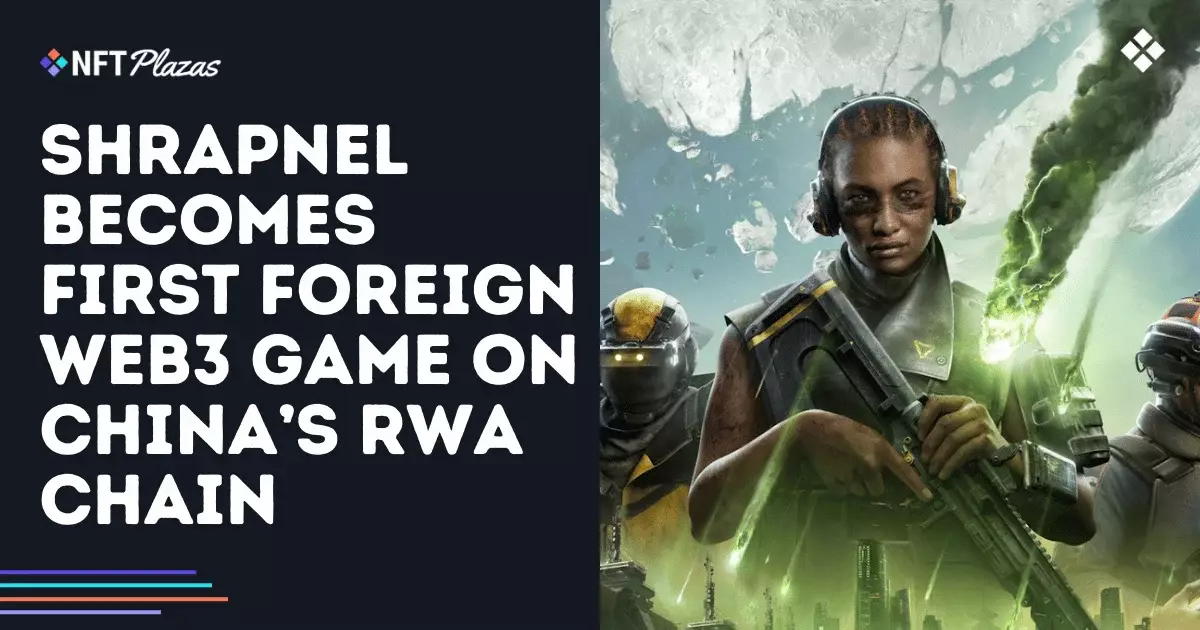In a groundbreaking turn of events, the web3 video game Shrapnel has been granted the approval to operate on China’s RWA Copyright Chain, marking a decisive moment for foreign blockchain-based gaming in the nation. This is not merely a regulatory development; it’s a strategic pivot that reflects a willingness by the Chinese government to engage with innovative technologies under clearly defined laws. With the gaming market in China valued at more than $40 billion, Shrapnel’s entry is a goldmine opportunity for both the game developers and the players, but it also raises eyebrows regarding the extent of government oversight in creative spaces.
A Localized Gaming Experience with Unique Assets
Shrapnel’s approach to localization is much more than just translating the game; it’s about crafting an authentic experience tailored to the Chinese market. By implementing a dedicated game launcher and using the RWA Copyright Chain to issue digital assets, Shrapnel is setting new standards for foreign games operating within tightly controlled environments. The integration of these assets as recognized property elevates the stakes—players can buy, sell, and trade in-game items, like skins and weapons, aware that their digital property is protected by the state. This not only legitimizes people’s investments in virtual worlds but also challenges the notion of how digital goods are perceived and governed globally.
A Coalition of Control: The Role of State Backing
The partnership with Lingjing Game Labs, which operates under the auspices of the People’s Daily—the mouthpiece for the Communist Party—raises significant questions about the intertwining of state interests with private enterprise. While some may view this coalition as a necessary evil that must be navigated to thrive, it’s crucial to acknowledge that this framework enables Shrapnel and its players to function within a sanctioned ecosystem. This isn’t just about gaming; it’s about setting a precedent for how foreign entities can achieve compliance in a nation often scrutinized for its regulatory rigidity, especially in tech sectors.
Potential Implications for Future Digital Enterprises
Shrapnel’s licensing is not just advantageous for the game itself; it serves as a beacon for other digital products looking to enter the Chinese market. By establishing a model of compliance and partnership with government entities, Shrapnel paves the way for future endeavors that want to benefit from one of the most lucrative gaming landscapes in the world without compromising their core identity. However, the question remains: will this be the norm, or an isolated case? The answer will largely depend on how the country continues to evolve its stance on blockchain technologies in relation to other sectors.
What Lies Ahead for Blockchain Gaming?
While Shrapnel’s entry into China doesn’t indicate a broad shift towards liberal policies, it certainly unfolds a narrative of cautious optimism. The acceptance of such a high-profile game may hint at a gradual silencing of the previously strict governmental rhetoric surrounding decentralized finance and cryptocurrencies. For now, the gaming community can only watch and wait to see if Shrapnel’s successful launch will inspire similar movements and collaborative efforts that respect both innovation and regulation.

